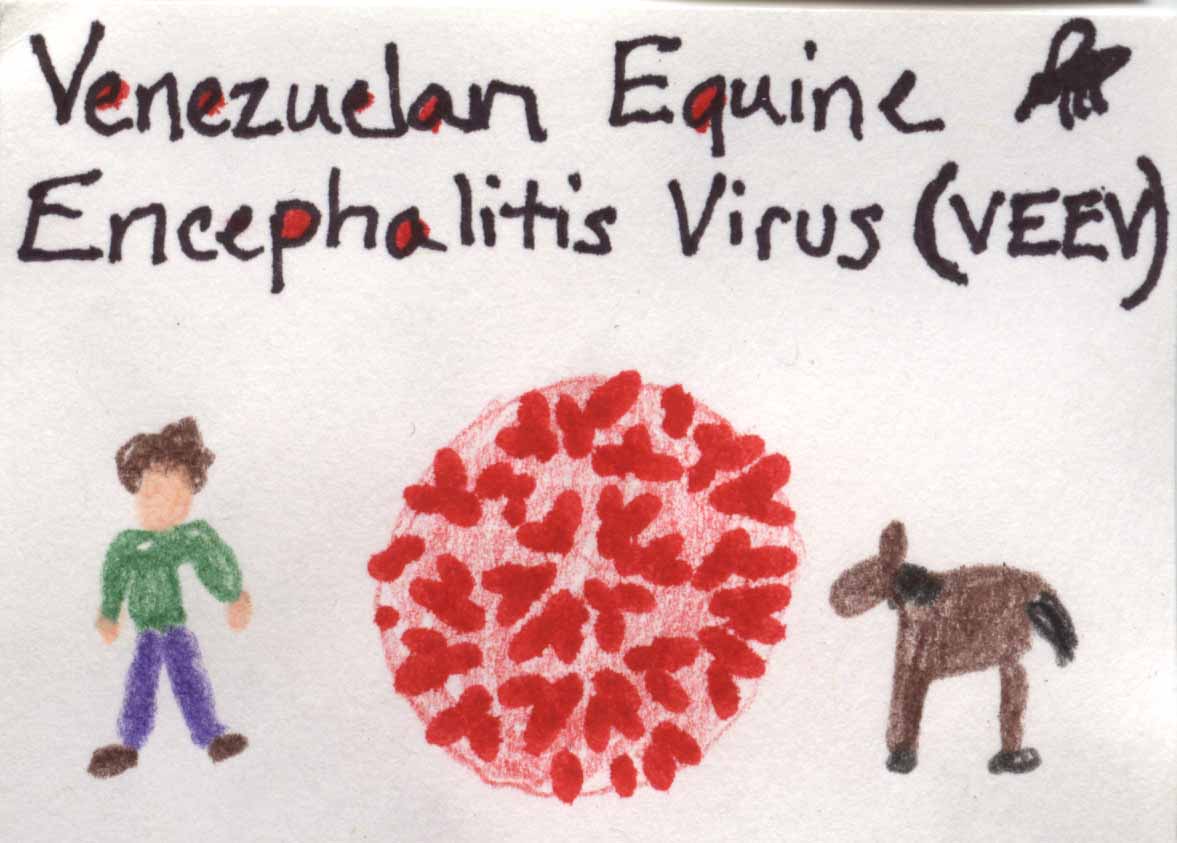
Taxonomy
Family--Togaviridae
Genus--Alphavirus
Power
Medium--rarely kills (<1% mortality; somewhat higher in children and elderly) but can make people very sick; can involve permanent neurologic sequelae
Offenses
Attacks--via mosquito; infection involves a systemic
influenza-like syndrome and can also
affect meninges and/or brain
Outcomes--99% survive; very few (<1%) have permanent CNS
damage
Speed--fast: incubation 1-5 days; onset is very sudden
Defenses
Vaccines--attenuated virus and inactivated virus
equine vaccines exist; they have been experimentally given to lab workers who work with VEEV but
aren't licensed for humans; there appears to be a lowish seroconversion rate (~78%) in humans
Behavioral--get vaccinated if at high risk; wear mosquito
repellant and long sleeves; avoid traveling to areas where VEEV is endemic; avoid hanging out
around equine species in endemic areas, or vaccinate horses
Treatment--analgesics and supportive care (which can be fairly
involved in the case of severe CNS symptoms); interferon has been successful in animal trials
Game Action
Move to a horse farm in Florida, get all of your horses vaccinated, and clear your area of standing water. Take an extra turn to celebrate your reduced risk.
"Fun" Fact
Was "weaponized" by the U.S. before we quit offensive biowarfare research; other countries may have VEEV in their bioweapons arsenals.